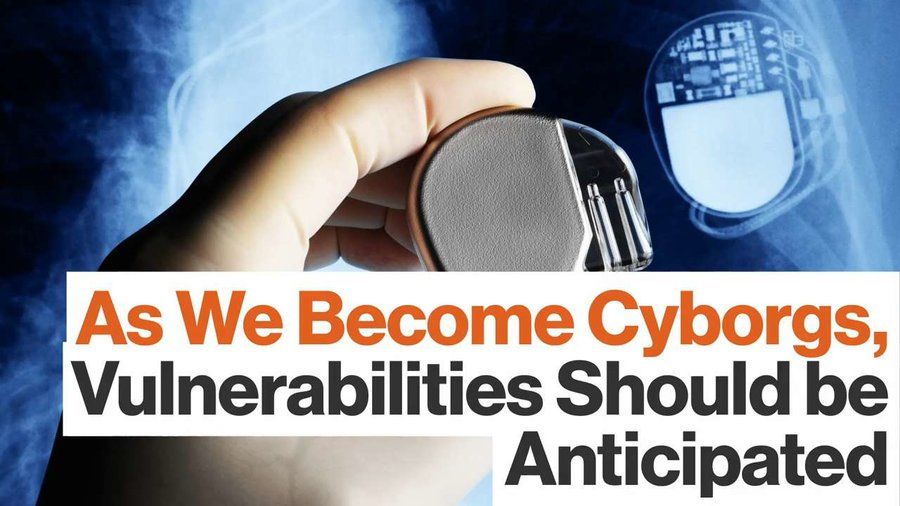All true and good points. Until the under pinning technology and net infrastructures are update; all things connected will mean all things hackable.
Medical devices like pacemakers and insulin pumps will save many lives, but they also represent an opportunity to computer hackers who would use the Internet to cause havoc. Former futurist-in-residence at the FBI, Marc Goodman says it is easy to take for granted how connected we’ve already become to the Internet. Most American adults keep their phones within arm’s reach all day, and keep their devices on their nightstand while they sleep — and forget about actually remembering people’s phone numbers. That is a job we have outsourced to machines.
In this sense, says Goodman, we are already cyborgs. But digital devices connected to the Internet will continue to move inside our bodies, just as pacemakers and insulin pumps have. In his interview, Goodman discusses cases of computer hackers taking advantage of these devices’ connectivity to show how vulnerable we could soon become to their potentially destructive wishes. In one case, a hacker demonstrated he could release several weeks of insulin into a diabetic’s body, certain to cause a diabetic coma and death. In another, hackers induced epileptic seizures by hacking the Epilepsy Foundation’s webpage.
At bottom is the Internet of Things, a increasingly connected web of devices that will make our lives simpler and more efficient, but this network will also make us vulnerable in ways that are difficult to detect, let alone prevent. Goodman’s message is not that we need to constantly fear a new world of better health and convenience, but that we need to be aware of technology’s pitfalls in life.
